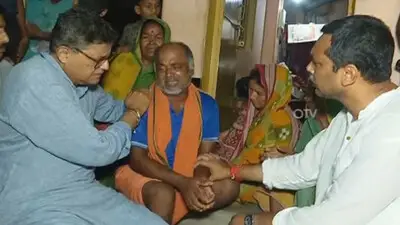Recommended Stories
By Ashutosh Mishra
Bhubaneswar: The most heartening aspect of 2019 verdict has been the near complete rejection of dynastic politics by the electorate. Nothing proves this better than the defeat of Congress president, Rahul Gandhi from the family borough of Amethi. He had inherited the seat from his father and former Prime Minister, Rajeev Gandhi who had adopted Amethi following the death of his younger brother, Sanjay Gandhi.
Rajeev retained the seat in 1984 and 1989 and following his death the seat went to Gandhi family’s close friend, Captain Satish Sharma. UPA president and Rajeev’s widow, Sonia Gandhi won the seat in 1999 after a brief hiatus of one year when it was held by Sanjay Singh, once a close friend of the family who had switched loyalty to the BJP. When Sonia shifted to Rae Bareli, the constituency nursed carefully for decades by her mother-in-law and former Prime Minister, Indira Gandhi in 2004 Amethi went to Rahul Gandhi who won it thrice in a row with convincing margins.
This time, however, even Rahul seems to have had a premonition about his defeat. His decision to contest simultaneously from Wayanad in Kerala was apparently prompted by the fear of losing Amethi, a family fief which rose in revolt against dynastic politics. The apologists of Gandhi family have sought to play down the defeat saying that neither Rahul nor his sister, Priyanka, who was the Congress general secretary in-charge of eastern UP, campaigned extensively in Amethi, implying that they were not serious about the seat. The fact of the matter, however, is that Rahul and his clan had an inkling of what was coming and hence decided to focus on Wayanad, a safe seat.
In Uttar Pradesh there were also other examples of electorate giving a thumbs down to family politics. For example while the father-son duo of Akhilesh Yadav and Mulayan Singh Yadav won from their respective strongholds of Azamgarh and Mainpuri, Akhilesh’s wife, Dimple Yadav faced an embarrassing defeat in Kannauj which was also considered a family borough.
In Odisha, too, election results have left the apologists of dynastic politics red-faced with members of powerful political families facing embarrassing defeats. For example while state Congress president, Niranjan Patnaik ( he has sent in his resignation to the AICC following party’s debacle) bit the dust in Ghasipura and Bhandaripokhari, the two assembly constituencies he contested from , his son Navajyoti Patnaik lost the Lok Sabha election from Balasore.
Congress has more such examples. Senior party leader, Bhakta Charan Das, who contested the Kalahandi Lok Sabha seat, and his son Sagar, who tried his luck from Bhawanipatna assembly constituency, also tasted defeat. The father-daughter duo of Ananta Sethi and Madhumita Sethi, both from Congress, lost in a similar fashion. Congress veteran and former leader of opposition, Narasingha Mishra had mixed luck in that while he retained the Bolangir assembly seat his son, Samarendra lost his maiden electoral battle from the Bolangir Lok Sabha constituency.
There was heartbreak also for the family of Bolangir royal and former minister, AU Singh Deo with both his sons, Kalikesh, who contested the Bolangir Lok Sabha seat, and Arkesh, who was in the assembly fray, losing to their rivals. The rejection of dynasty is a sign of maturity of Indian democracy with the electorate making informed choices.
(DISCLAIMER: This is an opinion piece. The views expressed are author’s own and have nothing to do with OTV’s charter or views. OTV does not assume any responsibility or liability for the same.)













